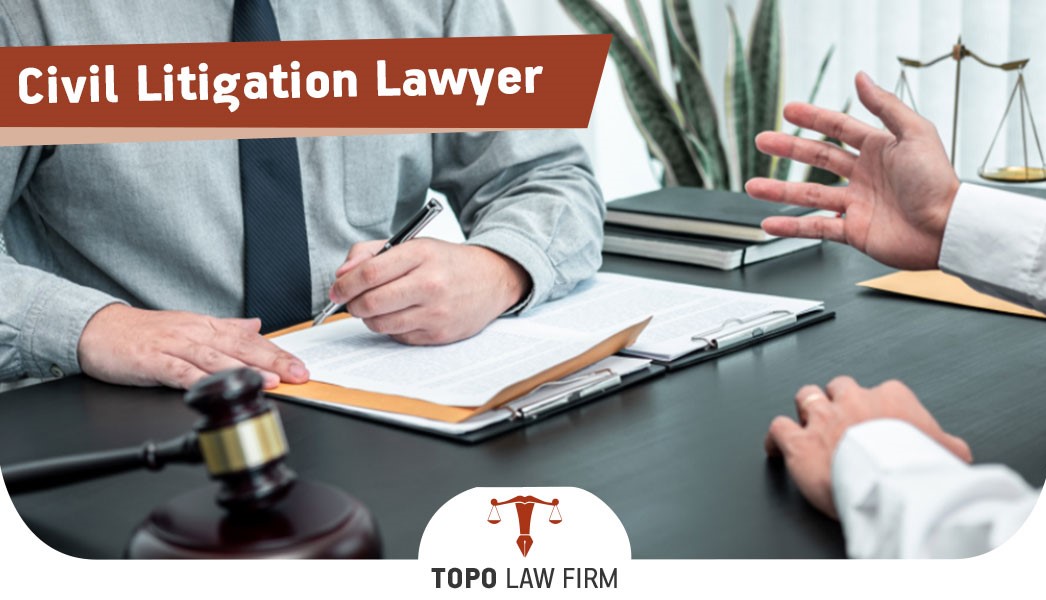How a Civil Litigation Lawyer Can Help
Whether you are involved in a lawsuit or a dispute in your everyday life, a civil litigation lawyer is the person to turn to for assistance. He or she will help you understand the legal process and will set out each party’s case on your behalf. From drafting legal documents and depositions to persuading juries, he or she will provide you with the necessary assistance.
Depositions
Taking a deposition is an important part of a civil litigation case. It helps the parties to understand the facts of the case and to avoid trial by ambush. It is also a chance for witnesses to provide their testimony under oath.
Depositions are often held in a law office or a conference room, and they are usually conducted without a judge present. However, attorneys may attempt to call a judge during the deposition.
The attorney who orders the deposition will start the proceedings by asking the deponent a series of questions. He or she will then cross-examine the deponent. When the questions are answered, the attorney may continue the deposition, or he or she may end the deposition. During the deposition, the court reporter will record everything said by the persons in the room. Afterwards, the court reporter will produce a transcript of the deposition. The transcript will be used by attorneys later in the case.
Depositions are typically held in a law office, but they can also be held remotely. Remote depositions can be taken using audio conferencing technology or video conferencing technology.
When taking a deposition, the deponent should be well-prepared. He or she should have a clear understanding of the questions being asked and should be prepared to answer them in a manner that is respectful. The deponent should also be ready to address any objections to the testimony. He or she should also be prepared to explain how exhibits are handled.
The deponent should also prepare for any questions about his or her background and personal life. This preparation is important because it will help the deponent to answer the questions in a clear and concise manner. The deponent should also be prepared to handle objections, and should avoid emotional outbursts.
The attorney will also help the client to choose the right words to answer the questions. If the deponent feels uncomfortable, he or she may ask the attorney for clarification.
The deponent should also be prepared to answer any embarrassing questions. The deponent may be asked to produce documents related to the case.
Persuasion
Using persuasion in the legal arena is a tricky business. You’ll need to persuade both parties to your cause and to get the judge to rule your case in your favor. The most effective advocates use key elements of persuasion to get results. A good start is to know the audience you’re going up against and make sure you know your case.
A well-constructed presentation is essential to winning your case. Having a solid outline of what you’re going to say will help you remember it all the next time you need it. The best part is that it will keep you focused on what you need to say, not on what you don’t. It’s not uncommon for unprepared lawyers to look at their notes and say nothing.
For most lawyers, the best way to persuade is by being persuasive. While you’re at it, show your audience you’re an ethical lawyer who cares about them. That’s not to say you have to be all mushy and gooey, but you should take care to do the most important thing: win.
The most effective way to persuade is by using the right tone of voice. Use a warm, friendly tone to reassure your audience that you’re there for them. This is especially important during a trial. The jury is going to hear a lot of different cases and will be skeptical of the claims you make. Make sure you’re on your game from the very start.
The most effective persuasion strategy involves using the right combination of logic, emotion and wit to win your case. You could spend years developing your arguments, but they’ll fail to make a splash if you don’t get the audience’s attention. To accomplish this, you’ll need to learn the most important rules of engagement. The most effective way to do this is to make your arguments relevant and interesting to your audience. If you follow these tips, you’ll have a leg up on the competition.
In order to get the most out of your persuasion efforts, you’ll need to know what to say, when to say it, and how to say it. The best way to do this is to read your audience and anticipate their reactions.
Legal process
Depending on the type of civil litigation, the process can take months or even years. A typical case of civil litigation could involve a breach of contract, infringement of intellectual property rights, or personal injury. Often, disputes are settled out of court. In some cases, however, the dispute is not resolved and the case will be sent to court for a trial.
To determine the legitimacy of evidence, the court will examine expert witnesses. It is important to understand the process of civil litigation, and to have an understanding of how courts will consider evidence in a case. If you believe you may be involved in a civil case, it is best to seek legal advice. You could lose your case if you do not seek legal assistance.
When filing a case in court, you will have to file a writ of summons. Typically, this document will be filed electronically through eLitigation. This document is a court document that informs the defendant of the civil proceedings and requires him or her to appear. If you do not receive the writ of summons, you can file it personally with the court. The process of filing a writ of summons will take time, so you can’t wait until you receive the document.



